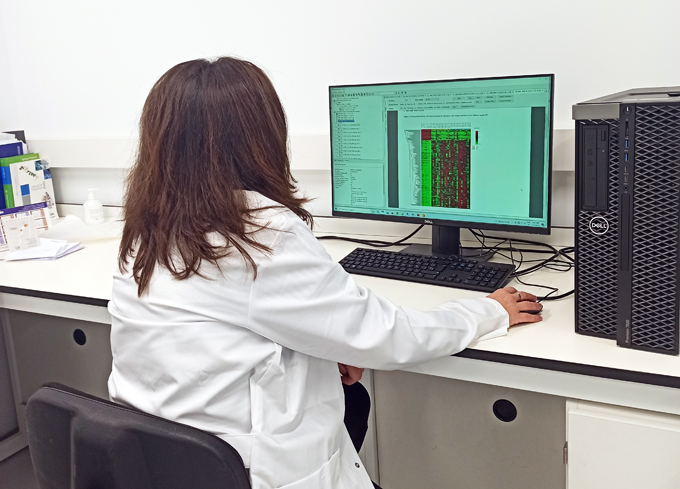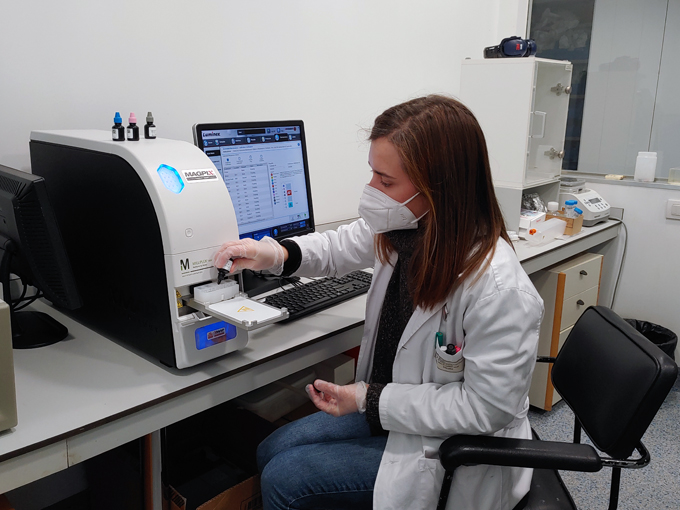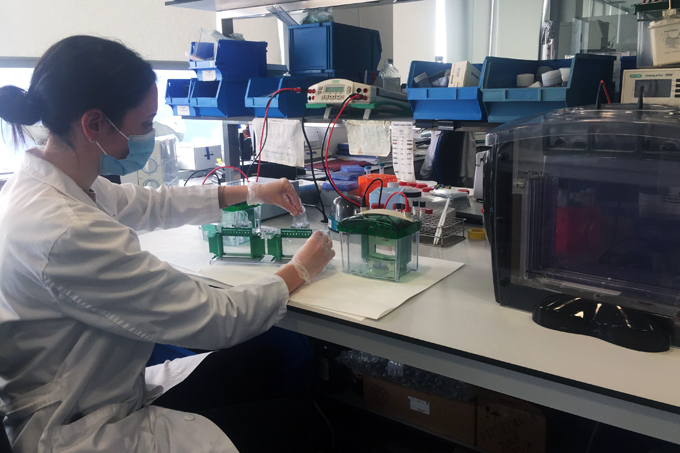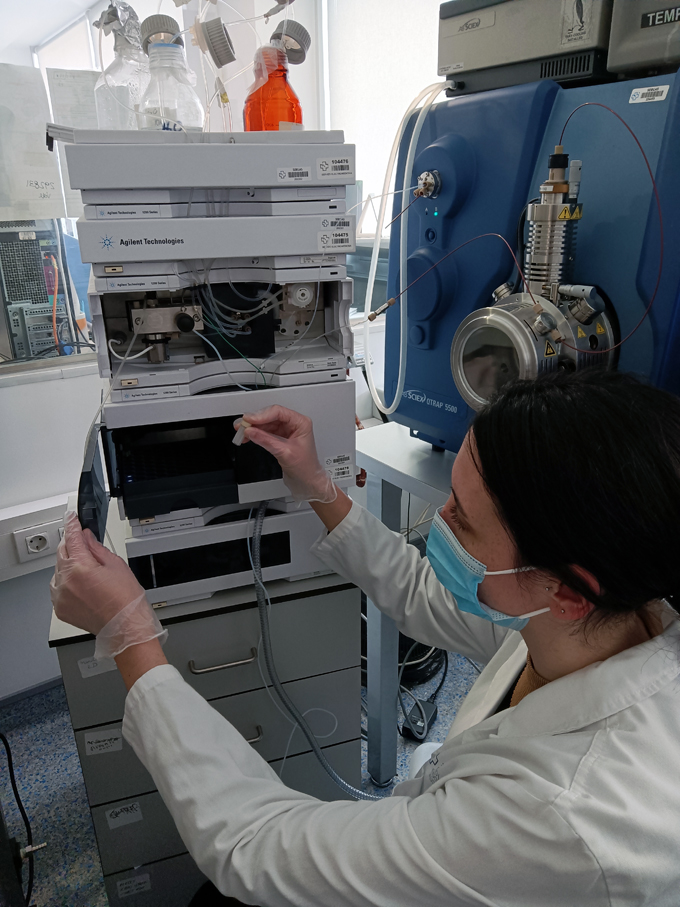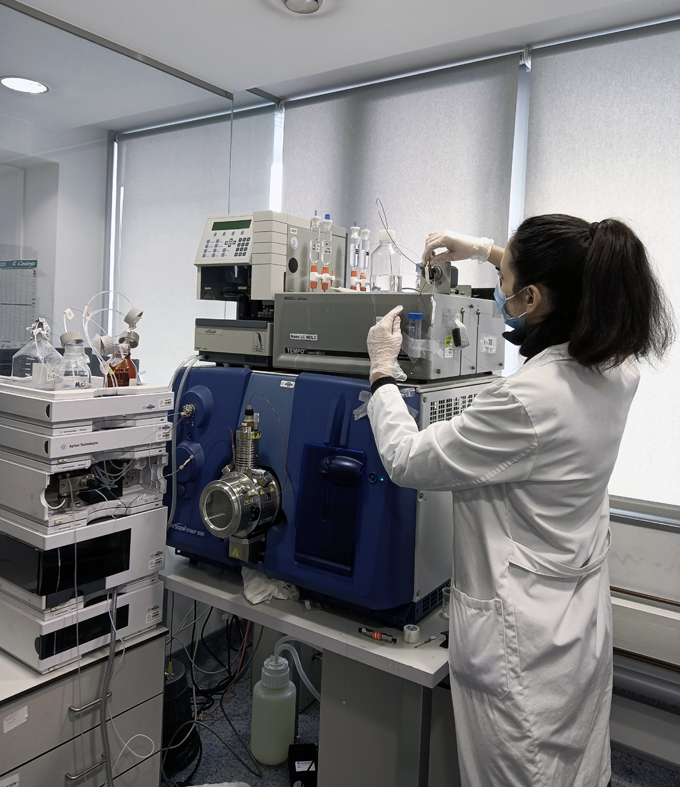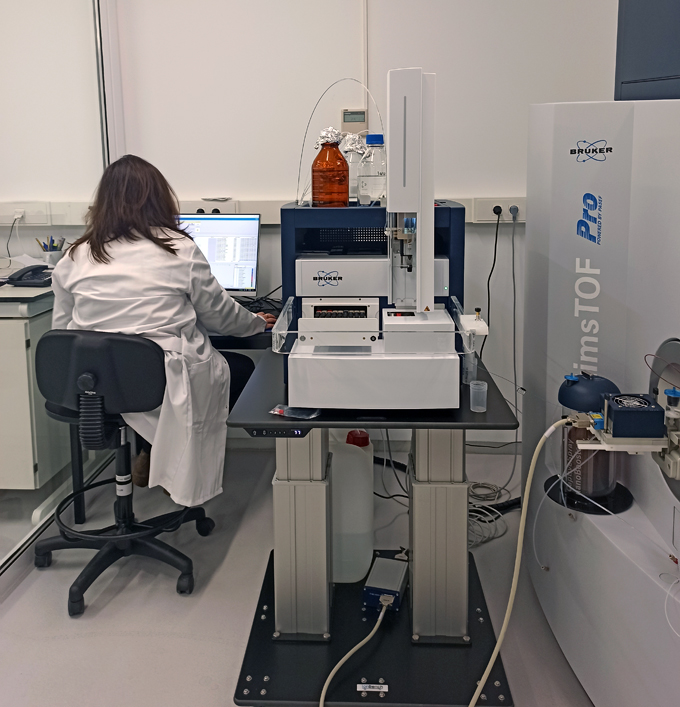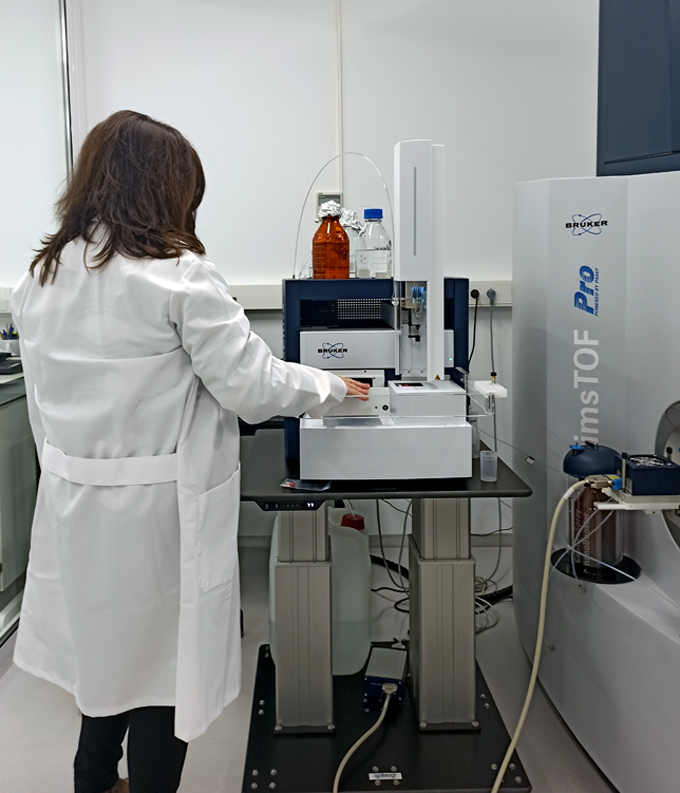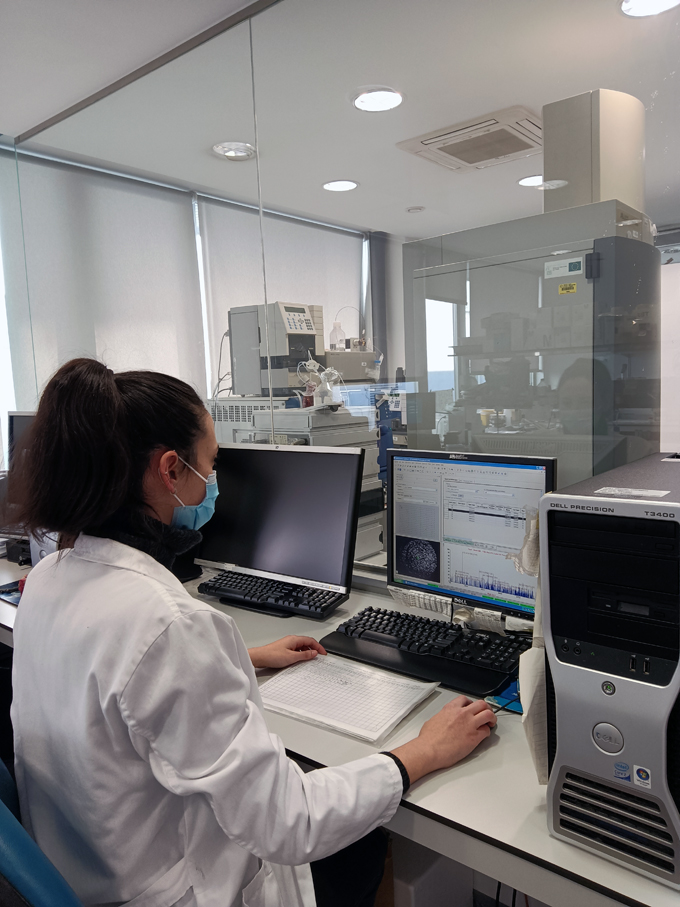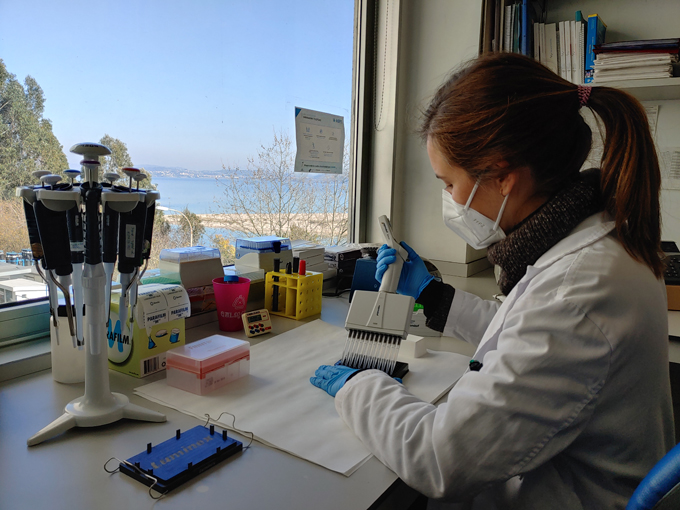U30-S09. Data analysis of proteomics experiments
Data analysis of proteomics experiments
Use of dedicated software for the analysis and interpretation of the results obtained from the proteomic analyses. It includes search engines (MaxQuant, DIANN) for protein identification and quantification, software for statistical analysis (Perseus) and programs for integrated solutions (Peaks) that also enable the analysis of post-translational modifications (PTMs), sequence variants and mutations.
Customer benefits
This service provides comprehensive reports of the data obtained in the proteomic analyses, following the customer’s indications and the objective of each specific project. Upon request, data and reports can be uploaded to private or public repositories.
Target customer
Organizations and research groups focused in biomarker discovery, metaproteomics studies, analysis of specific post-translational modifications, etc.
